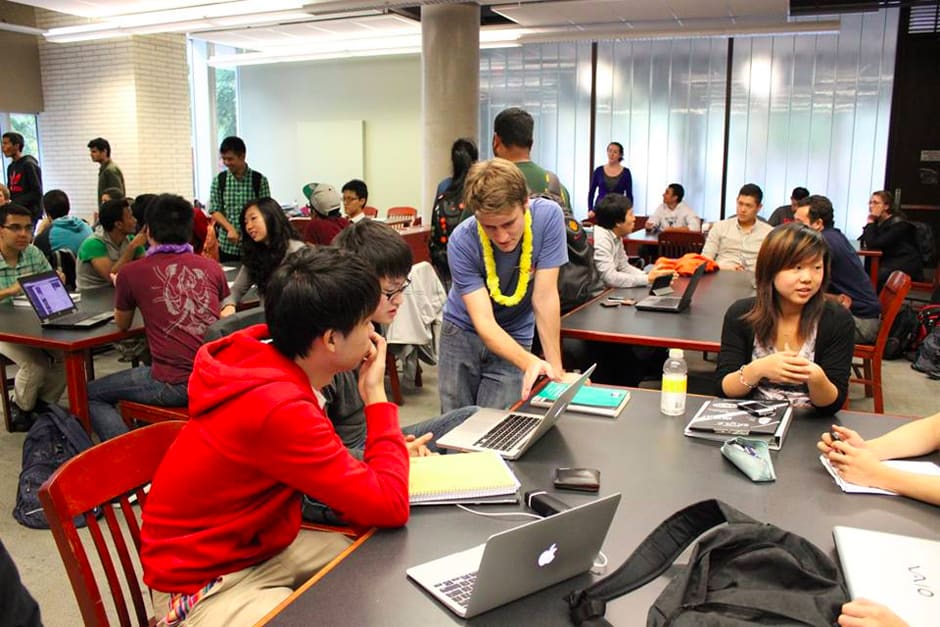You’re Next Career Network (YNCN) is a student-run career development organization focused on connecting U of T students with industry professionals. The network is an offshoot of You’re Next Career Fair, which was founded five years ago by the University of Toronto Engineering Society. The Varsity recently sat down with YNCN president Gordon Tang to discuss YNCN’s upcoming plans, student employment, and startup culture.
The Varsity: Tell me about YNCN’s upcoming plans for the year.
Gordon Tang: The big events are the You’re Next Career Fair and Startup Expo in January, but the smaller events, like the Resume Hackathon or student-manager coffeehouses, are really what people should be keeping an eye out for. They tailor a lot better to students’ needs. For example, we’re running eight events in September, with different companies like Google, Microsoft, and Shell [attending]. What we’re doing is paring down to things students can understand. What is the real process that students go through, and how can we support them? We broke it down into three parts: discover, prepare, and apply. We’re categorizing future events to correspond to these three stages. Discover is about finding out what industry, what company, which roles you want. Once you know, then you’re ready to prepare: build your resumé, write cover letters, and network. Finally, just apply. This means meet companies, which we support through hosting career fairs and exclusive company events.
TV: Could you speak to some of YNCN’s success with these aims in the past?
GT: Our end goal is ultimately to help students get hired, but it’s a hard goal for us to measure, because that data isn’t always there. So we measure ourselves on how many students we reach out to. I think we are consistently growing that number — in terms of unique U of T students, I’d say we reach about roughly 3,000 annually. Last year, the turnout for the Career Fair was around 2,600 people, while the Startup Expo drew about 2,000.
TV: Why do you think promoting startups is important?
GT: Startups really do provide huge, fast learning opportunities. You get to do a lot of different things you can’t do at larger companies. The scale might be smaller, but you get to build skills you don’t get otherwise. Rather than having to build your own business, you can just jump into a role [where] there’s … enough room for you to move, but you don’t necessarily have to do as much upfront work as an entrepreneur. Startups are [a] medium between hard-core entrepreneurship and corporate companies.
TV: What is startup culture like at U of T?
GT: It’s something we’ve been trying to build over the past year. Two things: first, there needs to be an awareness that there are startups out there; second, we need a space for students to build community and be able to connect with like-minded individuals about startups.
TV: Do you think the university provides adequate resources for startup culture?
GT: I don’t think there’s [a] huge focus on it yet. I think what the university has done well so far is provided certain resources and opportunities, like the Hatchery or Creative Destruction Lab, to look specifically at entrepreneurship. But startup culture isn’t just about entrepreneurship. Entrepreneurship really just focuses on the beginning stage of startups: how do you kick one off? But there isn’t anything that shows how, as a student, you would be able to help with a growing company. How do you jump in? What are the different types of startups and stages? This is the gap we are trying to bridge.
TV: Are you into startup culture yourself?
GT: I’m working at a startup called Influitive right now as [a] product management intern. They run a software portal to help business to business companies engage with advocates. I talked to the CEO at an event and asked, “Hey, do you have a product position?” He said, “Yeah, maybe.” Four weeks later, he asked if I was still interested, and I said yes. So I just went and started — it was a very informal process.
TV: What do you like best about the job?
GT: I think [it’s] a big lifestyle thing. In terms of work culture and people, it’s very open. You’re also working beside people who are there because they want to [be], not solely because they want a paycheck. They’re very committed — there’s intrinsic motivation to build the product, because they see a need for the product and how it will help others.
TV: Given your experience, what’s your advice for those who want work for startups?
GT: If you know you’re interested and how you can contribute, just reach out. Find someone that you can email or call and say: “Hey, I’m interested in working with you guys, how do I do it?” It’s different from [a] corporate application process, because if you’re really gung-ho about it, you just need to take initiative and do it.
This interview has been edited and condensed for clarity and length.


